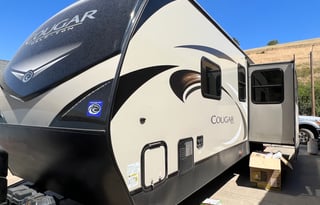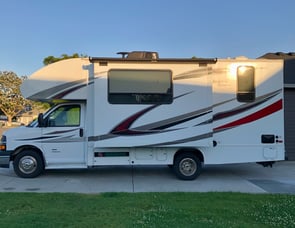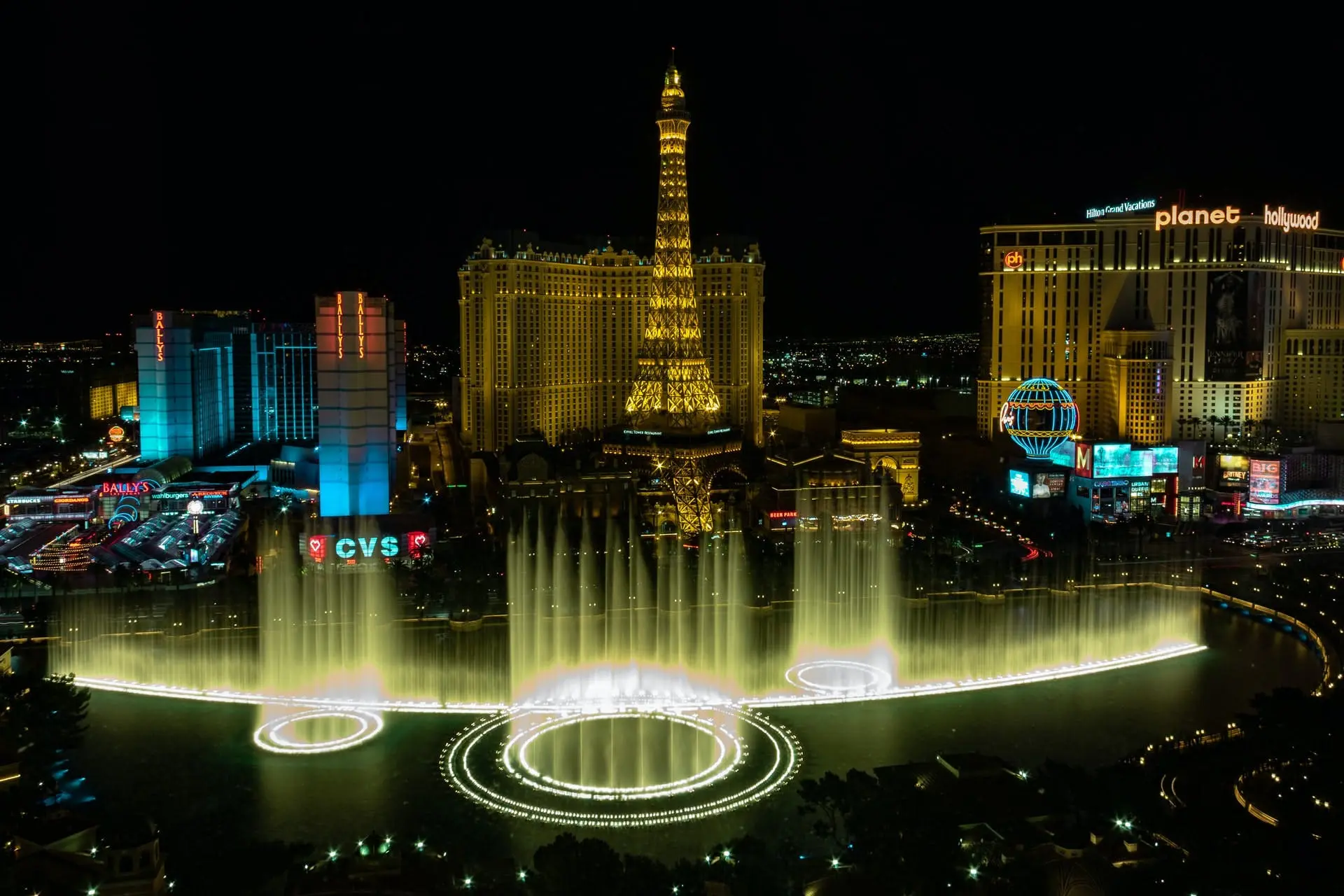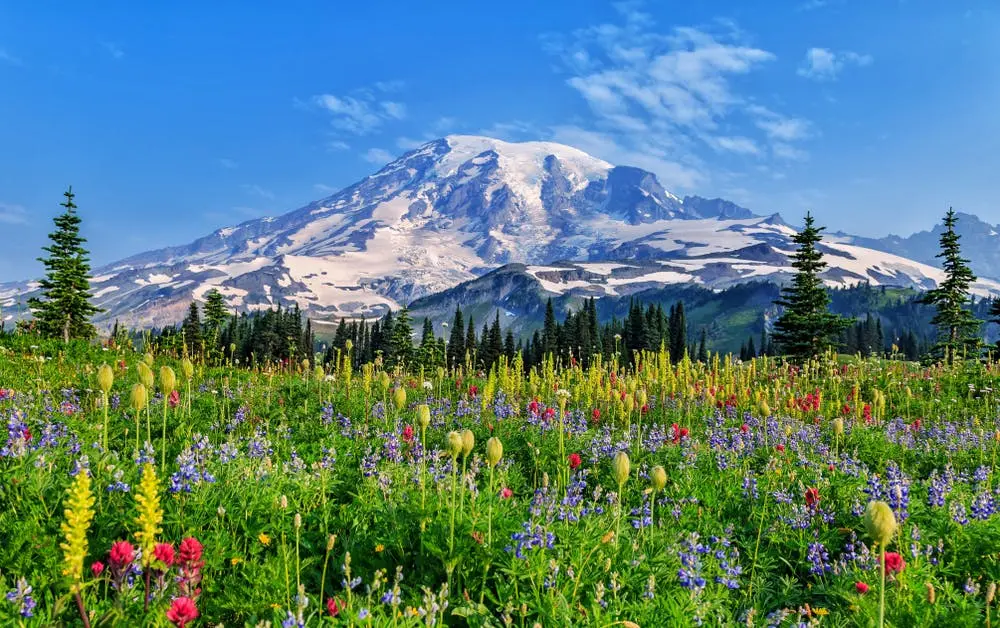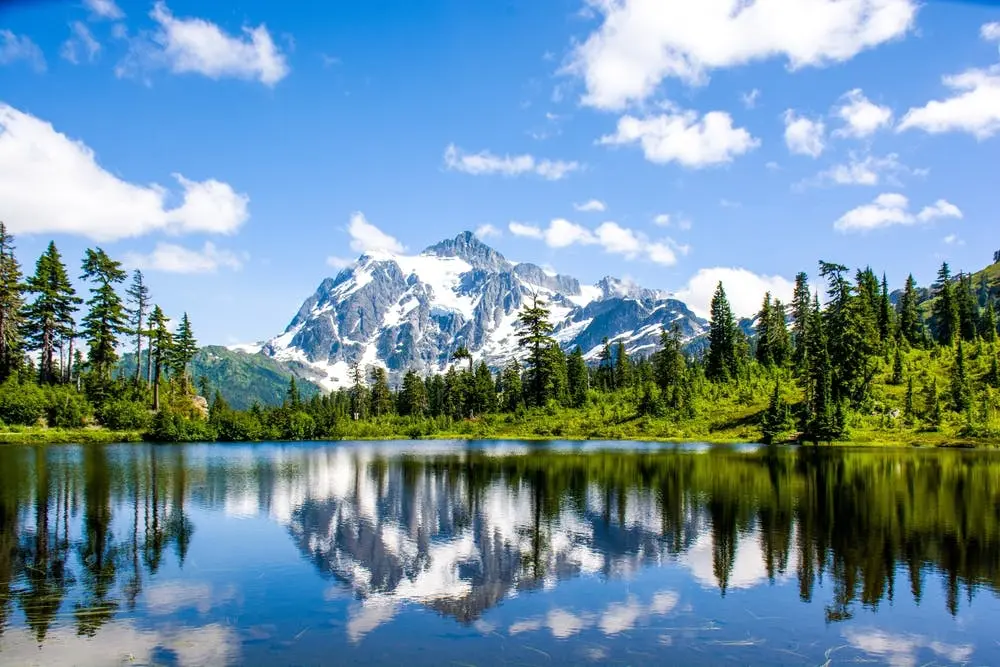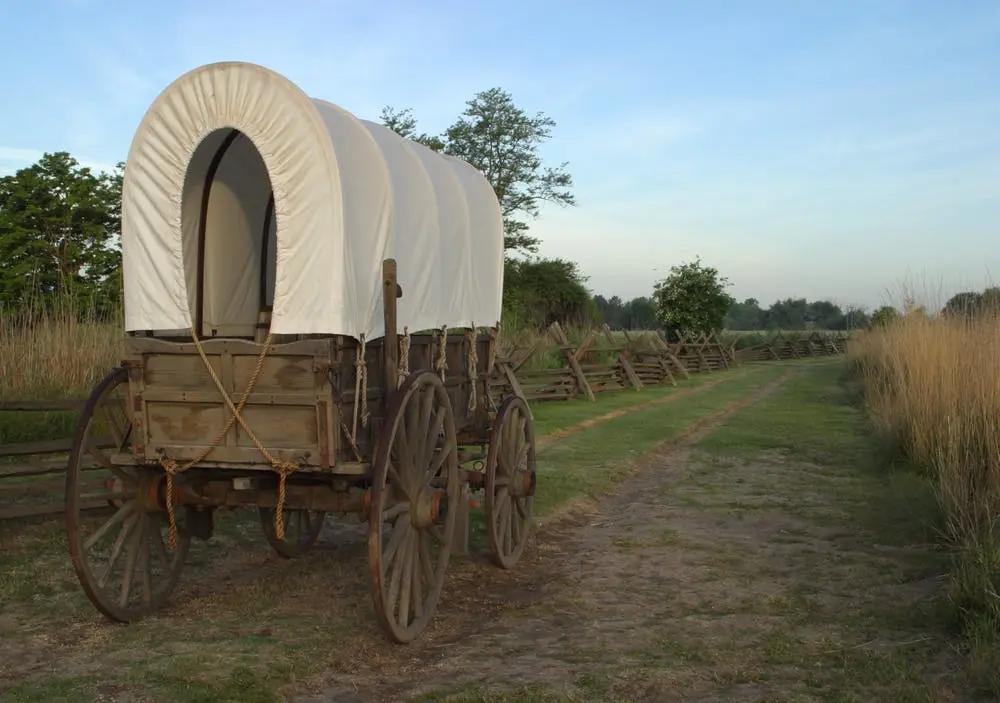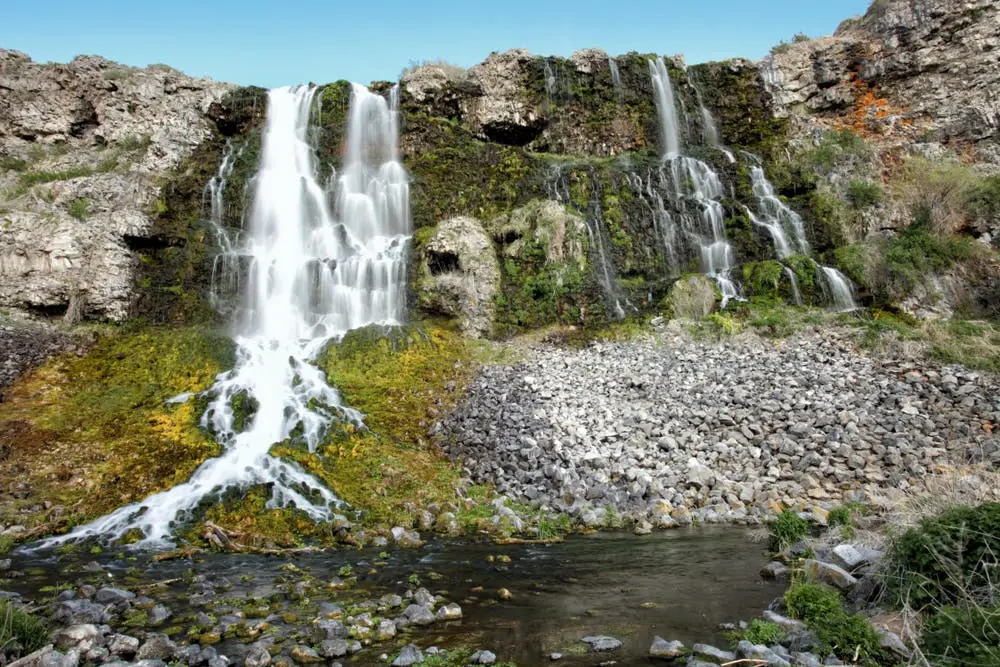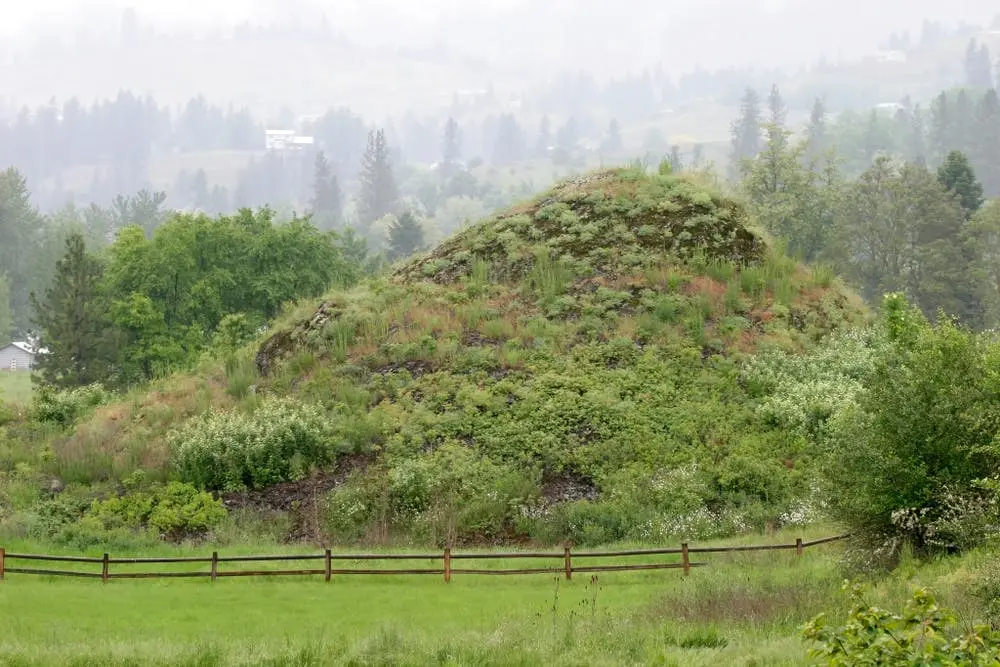Walla Walla, Washington, has a few dump stations available for RV travelers. You can find dump stations at Pendleton KOA, C & M Country Store, Pasco/Tri-Cities KOA, and Tri-Cities RV Park. Most of these dump stations offer facilities to dump black and grey water, fresh water fills, a hose for flushing tanks, a trash bin, and waste disposal services. Ensure you check the hours of operation before heading out to any of these locations.
RV Rentals in Walla Walla, Washington
RV Rentals Near Walla Walla, WA
Top Motorhome RV Rentals
Top Travel Trailer RV Rentals
Longer Term RV Rentals in Walla Walla, WA
Budget Friendly RV Rentals in Walla Walla, WA
Top Camper Van RV Rentals



Explore Walla Walla, Washington, in an RVshare RV Rental
The fertile land where Walla Walla is now located was formed after glacier floods about 15,000 years ago. It became home to many Native Americans, including the Nez Perce, Cayuses, Umatilla, and Walla Wallas. Lewis and Clark visited the area in 1805. In 1806, The North West Company was formed with the purpose of trading with the local tribes, which Clark and Lewis had reported as friendly. Following the War of 1812, the Hudson Bay Company established Fort Walla Walla, which had been named by Lewis and Clark. It was the name the Indians said when they inquired about this Columbia Plateau region's name. The name translates to "running waters" or "land of many waters." Marcus and Narcissa Whitman arrived in 1836, and they established a mission dedicated to spreading Christianity and educating residents. The mission was an essential stop on the Oregon Trail, especially since Marcus had received training as a medical doctor. In 1847, when a measles outbreak devastated the Cayuses, Whitman was blamed, and the Whitmans were killed. You can learn more by visiting the Whitman Mission National Historic Site.
In 1853, Walla Walla County was created. It covered all the land between the Cascade Mountains and the Rocky Mountains. Several skirmishes with local tribes resulted until Native Americans were forced to live on reservations in 1859. Businesses sprung up to service Fort Walla Walla, established in 1856, and the nearby cattle ranches. After gold was discovered in eastern Idaho, the area grew quickly to meet the needs of the prospectors who promptly arrived. The town was officially incorporated and named the county seat in 1862. Head to the Fort Walla Walla Museum to learn more before tasting local produce and wine in many area businesses. You may also want to sample the Walla Walla onion, which is the official state vegetable of Washington, by eating a great hamburger at the Maple Counter Cafe, Ice-Burg Drive-in, or Red Monkey Downtown.
The start of the 18th century saw even more development. Soon, modern farm machinery could be used to produce larger harvests. The Walla Walla Canning Company was established in 1932, and other canning facilities were opened quickly afterward. The U.S. Army Corps of Engineers established its regional office in the city in 1948. They began working on several dam construction projects, making the city known for its outstanding fishing locations. Find out for yourself by visiting Bennington Lake, Fish Hook Pond, and the Snake, Columbia, Walla Walla, and Touchet rivers. The town was moved to its current location in 1953 following the completion of the Port of Walla Walla a year earlier.
Events In Walla Walla, Washington
Walla Walla Spring Release Weekend - Celebrate new releases from area wineries at this spring festival.
Walla Walla Spring Fling - Pioneer Park is home to this spring festival featuring live music and sweet treats.
Feast Walla Walla - Over 40 area restaurants and wineries offer samples at this June festival in the downtown area.
Walla Walla Sweet Onion Festival - Bring the family to this July festival featuring food, family games, and music.
Explore Walla Walla, WA
If you plan on exploring all that Walla Walla, Washington, has to offer, renting an RV from RVshare would be a perfect option for an economical trip. Walla Walla, Washington, is a lovely city perfect for RV travelers seeking a small-town atmosphere and an abundance of outdoor activities. With a population of around 32,000, this city is nestled in the southeastern part of the state and is known for its rich history and excellent wineries. Fort Walla Walla Museum: History buffs will appreciate Fort Walla Walla Museum, which showcases the region's past from prehistoric times to the modern day. The museum features exhibits on Native American culture, early settlers and pioneers, military history, and much more. Seven Hills Winery: Wine enthusiasts are sure to enjoy visiting Seven Hills Winery. This charming winery offers tastings of some of the best wines in the region, including Merlot, Cabernet Sauvignon, and Syrah. Gramercy Cellars: Another great winery to visit in Walla Walla is Gramercy Cellars. This award-winning winery specializes in Rhône-style wines like Syrah and Grenache. In addition to these destinations, there are plenty of other things to see and do in Walla Walla. You can explore the nearby Blue Mountains or take a scenic drive through Palouse country.
Road Trips Starting from Walla Walla, WA
Best National Parks Near Walla Walla, WA
North Cascades National Park, situated about 240 miles northwest of Walla Walla, is a mountainous park that boasts more than 300 glaciers. It offers many hiking trails and scenic drives. The park has three campgrounds, but only two offer RV hookups - Colonial Creek Campground and Newhalem Creek Campground. Mount Rainier National Park, established in March 1899, is 200 miles west of Walla Walla. This national park is famous for its stunning view of Mount Rainier, which stands at a height of 14,411 feet. The park offers many hiking trails and scenic drives. Two campgrounds in the park offer RV hookups - Cougar Rock Campground and Ohanapecosh Campground. While visiting Mount Rainier National Park, you may also consider visiting Crystal Mountain Ski Resort or taking a stroll to see Myrtle Falls.Remember to plan ahead since reservations are required for all campsites in these national parks. Whether you're an experienced RVer or a first-timer, exploring these national parks near Walla Walla will be an unforgettable experience.
Popular State Parks Near Walla Walla, WA
Wallowa Lake State Park is located in Wallowa County, Oregon, about a two-hour drive from Walla Walla. This park offers RV campers stunning views of the mountains, cozy cabins, tent sites, and full-hookup campsites. The park has 121 full-hookup sites, sewer and water hookups, and a 30-amp service. There are also 88 electrical sites with water hookups and a 20-amp service. Additional amenities in the campgrounds include restrooms, hot showers, fire rings, picnic tables, and a dump station. The park also offers boat rentals for those who want to explore the lake. Potholes State Park is located in Grant County, Washington, and is about an hour and a half drive from Walla Walla. This park has a total of 60 campsites that are available for RV camping. The campsites offer 30-amp electrical hookups; however, no water or sewer hookups are available at any of the sites. The park does provide potable water spigots throughout the campground. Other amenities in the campgrounds include restrooms with flush toilets and hot showers. Hells Gate State Park sits on approximately 960 acres in Nez Perce County, Idaho, and is roughly an hour's drive from Walla Walla. This park has one campground that provides RV camping opportunities with over 100 campsites available to RVers. All of these campsites have electricity (30/50-amp), sewer, and water hookups available for visitors. The campground also offers restrooms with flush toilets/showers as well as picnic tables/fire pits at each site.
Must-see Monuments and Landmarks Near Walla Walla, WA
The Hagerman Fossil Beds National Monument, located in Hagerman, Idaho, is a must-visit landmark near Walla Walla. This site features the world's richest deposits of Hagerman horse fossils, a prehistoric horse breed. Visitors can see the fossils at the Hagerman Horse Quarry or explore Lower Salmon Falls Park and Thousand Springs State Park - Ritter Island to witness the stunning natural beauty of the surroundings. The Devil's Wash Bowl Cave is also an interesting geological feature that visitors can explore by hiking along its trails or through guided tours. Those who want to learn more about the area's history can visit the museum on-site. Additionally, you can take a scenic drive to appreciate the stunning views of this region while enjoying a drive in your RV or go on a walking trail to appreciate the local flora and fauna. With many things to do and sites to see in this area, you will have an unforgettable trip when renting an RV in Walla Walla.
RVshare’s Top Picks for Nearby RV Parks & Campgrounds
Pierces Green Valley is an excellent option for RV camping in Walla Walla, Washington. You can expect to find showers within this park. Pets are allowed, and there is strong cell reception. Tucannon River RV Park offers full hookups (30/50 amp), back-in/pull-through sites, a pool/hot tub, showers, and a lending library. Pets are allowed in this park; you also get free Wi-Fi. Starbuck/Lyons Ferry Marina KOA is another popular option with showers and strong cell reception. Pets are allowed. Hood Park is a budget-friendly campground with 68 RV sites (30/50 amp) that allow pets. You can enjoy hiking trails and fishing. There is a playground here, and the cell reception is also strong.
RV Rentals Near Walla Walla, WA
Frequently Asked Questions About Renting an RV Near Walla Walla, WA
How much does it cost to rent an RV in Walla Walla?Motorhomes are divided into Class A, B, and C vehicles. On average expect to pay $185 per night for Class A, $149 per night for Class B and $179 per night for Class C. Towable RVs include 5th Wheel, Travel Trailers, Popups, and Toy Hauler. On average, in Walla Walla, WA, the 5th Wheel trailer starts at $70 per night. Pricing for the Travel Trailer begins at $60 per night, and the Popup Trailer starts at $65 per night.
Do you need to be a certain age to rent an RV in Walla Walla?Yes. The minimum age is 25 to be eligible to get an RV Rental in Walla Walla from RVshare.
Does RVshare have emergency roadside assistance?Yes. Every RV rental booked through RVshare receives 24/7 emergency roadside assistance.
Does RVshare offer one way RV rentals in Walla Walla?Yes. Prior to renting any RV, check with the owner since not all will offer this particular option.
